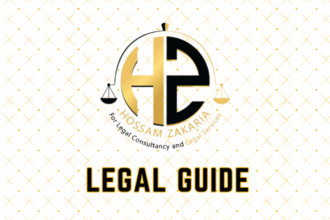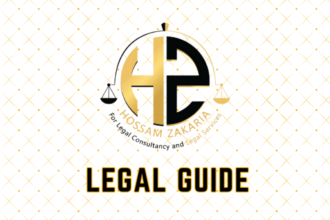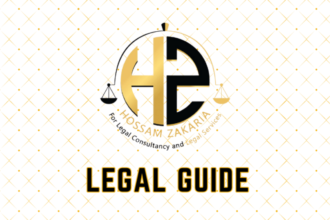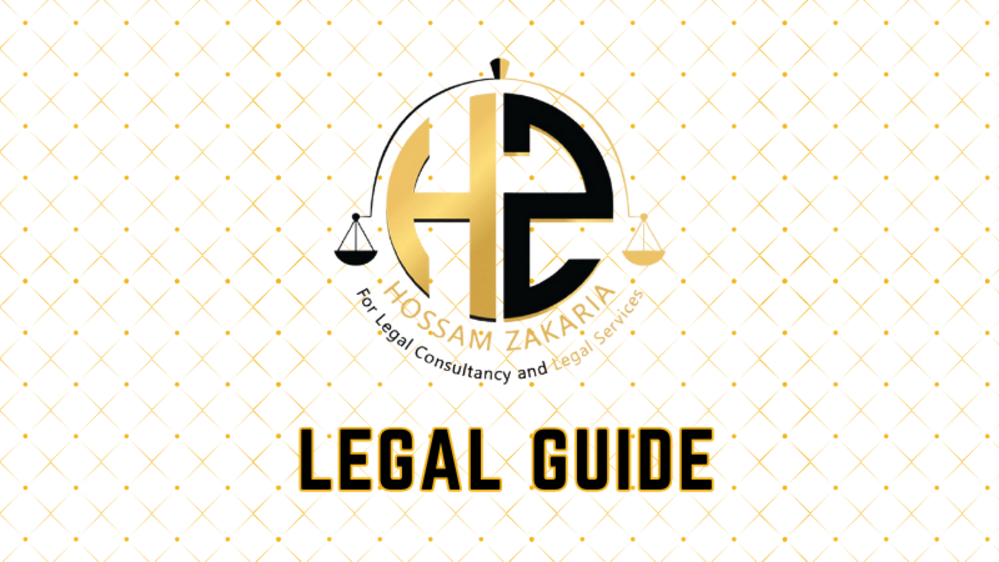Introduction: Strategic Importance of Qatar Aviation Law Transformations for UAE Stakeholders
In recent years, the Gulf region has witnessed dynamic developments in the aviation sector, underpinned by sweeping legal reforms. Qatar’s aviation law transformations represent a significant pivot that directly affects international air transport, regulatory compliance, and cross-border investments—matters of acute importance for UAE corporate stakeholders. As the UAE positions itself at the forefront of global aviation, understanding these legal changes is essential. This article serves as a consultancy-level advisory, providing an incisive analysis of the legislative updates shaping Qatar’s aviation framework, with a particular focus on implications and compliance strategies for UAE companies, executives, and legal practitioners. Our insights are underpinned by verified official guidance from UAE and GCC legal sources, making this a trusted resource for proactive strategic planning in 2025 and beyond.
Table of Contents
- Understanding Qatar’s Recent Aviation Law Reforms
- Comparative Legal Analysis: Qatar and UAE Aviation Regulations
- Key Provisions and Compliance Obligations
- Impact on UAE Businesses and Sectoral Case Studies
- Managing Legal Risks: Strategies for UAE Enterprises
- Practical Guidance: Building a Roadmap for Aviation Compliance
- Conclusion: Staying Ahead in a Transformed Regulatory Environment
Understanding Qatar’s Recent Aviation Law Reforms
Context and Legislative Backdrop
The State of Qatar has recently overhauled its aviation regulatory environment, reflecting a wider GCC trend toward modernisation, transparency, and stronger oversight. The new legal landscape is shaped principally by Qatar Civil Aviation Law No. 15 of 2021 (the “Qatar Aviation Law 2021”), which abrogates and replaces several older decrees. This legislation harmonises Qatar’s framework with evolving International Civil Aviation Organization (ICAO) standards, introducing updated provisions on civil aviation safety, security, liability, and commercial licensing.
Drivers of Reform
Key legislative drivers include:
- Alignment with international best practices (ICAO and IATA mandates).
- Preparation for increased air traffic post-World Cup and broader regional events.
- Accommodating new technologies (e.g., UAVs and eVTOLs).
- Enhanced cross-border cooperation within the GCC framework, supporting regional connectivity agreements such as those promoted by the GCC Secretariat and UAE General Civil Aviation Authority (GCAA) directives.
Qatar Aviation Law 2021: A Synopsis
The new Law No. 15/2021 sets forth:
- Licensing parameters for airlines and air operators.
- Safety and environmental obligations for carriers and airport operators.
- Civil liability norms concerning passengers, cargo, and third-party risk.
- Rigorous reporting and compliance duties, impacting flight schedules, safety audits, and incident notifications.
Official Reference: Qatar Civil Aviation Law No. 15 of 2021, published in the Official Gazette (Qatar), in parallel with updates from the UAE GCAA and Federal Aviation Administration regional memoranda.
Comparative Legal Analysis: Qatar and UAE Aviation Regulations
Overview of UAE Aviation Regulatory Framework
The UAE’s aviation sector operates under the Federal Law No. 20 of 1991 on Civil Aviation (as amended), successive Cabinet Resolutions, Ministerial Guidelines, and GCAA policies. The UAE framework is renowned for its robust compliance architecture and seamless integration with international standards. Recently, new mandates under “Federal Decree-Law No. 26 of 2022 on Civil Aviation” have further expanded oversight, introducing digital reporting requirements and enhanced safety management systems (SMS), directly impacting airlines and aviation service providers domiciled in the UAE.
Key Similarities and Differences
For UAE businesses engaging with Qatar’s aviation sector, understanding regulatory convergence and divergence is vital. Differences relate to licensing procedures, liability thresholds, and data compliance. The table below charts a comparative overview:
| Aspect | Qatar Aviation Law 2021 | UAE Civil Aviation Law (as amended 2022) |
|---|---|---|
| Regulator | Qatar Civil Aviation Authority (QCAA) | UAE General Civil Aviation Authority (GCAA) |
| Primary Law | Law No. 15 of 2021 | Federal Law No. 20 of 1991; Decree-Law No. 26 of 2022 |
| Aircraft Registration | QCAA domain; local registered agent required | GCAA domain; local sponsor required |
| Safety Audits | Mandatory, ICAO-aligned (annual minimum) | Mandatory, ICAO and IATA-aligned (periodic & ad hoc) |
| Crew Licenses | QCAA licensure (with stricter revalidation) | GCAA licensure; more flexible conversion path |
| UAV/Drone Policy | Permitting expressly regulated under Art. 62 | Permits under GCAA UAS Regulation, Cabinet Res. No. 36 of 2020 |
| Data Sharing | National security priority; real-time reporting mandatory | Centralized through GCAA electronic portals |
Consultancy Insight: UAE businesses must review contractual language, insurance, and compliance certifications rigorously when operating under both jurisdictions to sidestep inadvertent breaches or regulatory gaps.
Suggested Visual: Comparative Process Flow Diagram
Placement suggestion: Insert a process flow diagram illustrating parallel steps for airline licensing and compliance audits in Qatar and the UAE, highlighting unique checkpoints.
Key Provisions and Compliance Obligations
Licensing and Operational Permissions
Qatar: Law 15/2021 intensifies pre-approval requirements for new air operators and charter services. Applicants—especially foreign or GCC-based entities, including UAE companies—must now present enhanced documentation (safety management manuals, proof of financial viability, and stricter insurance policies). Routine background checks are compulsory for all key personnel.
UAE: Federal Law No. 20 of 1991 (as amended) and GCAA regulations similarly demand comprehensive vetting but permit greater use of digital submissions and pilot schemes for sandbox licensing.
Safety, Security, and Environmental Compliance
Both Qatar and the UAE have elevated their baseline safety and security requirements:
- Integration of SMS and Environmental Management Systems (EMS).
- Rigorous incident notification and investigation, per ICAO Annex 13 and national procedures.
- Regular crew medicals and proficiency checks (stricter frequencies imposed in Qatar as of 2024).
Insurance, Liability, and Consumer Protection
Law 15/2021 ratifies increased liability limits for passenger and cargo loss (aligned with the Montreal Convention 1999), while the UAE maintains flexible liability ceilings subject to Ministerial review. Both require robust evidence of insurance and compensation protocols. New Qatari rules impose expedited dispute resolution windows, compelling UAE-based carriers to adjust claims processing timelines accordingly.
Table: New vs Old Aviation Law Liability Provisions
| Provision | Qatar (Law 15/2021) | Qatar (Old Law) | UAE (Decree-Law No. 26/2022) |
|---|---|---|---|
| Passenger Compensation (Death/Injury) | Up to SDR 113,100/passenger | SDR 50,000/passenger | Variable, aligned with ICAO/Montreal; reviewable yearly |
| Baggage Loss/Damage | SDR 1,800/bag | SDR 1,000/bag | Policy-driven, varies; requires notification within 7 days |
| Cargo Claims | SDR 20/kg | SDR 17/kg | Flexible; GCAA guidelines apply per consignment |
| Dispute Resolution | 30-day resolution window | Not specified | 30–60 days, case-specific |
Case Study: UAE Operator Entering Qatar Airspace Post-Reform
A UAE-chartered cargo operator recently expanded its route network to Doha. Under Law No. 15/2021, the operator was required to file a comprehensive security manual and environmental compliance report with the QCAA, in addition to its standard GCAA submissions. An on-site audit by Qatari authorities delayed launch by three weeks—a scenario avoided in the UAE due to reciprocal audit recognition. This underscores the importance of advance, dual-jurisdiction readiness for UAE businesses.
Suggested Visual: Compliance Checklist Table
| Checklist Item | Qatar Law No. 15/2021 | UAE Law (Decree-Law No. 26/2022) |
|---|---|---|
| Operator License (AOC) | Mandatory | Mandatory |
| SMS/EMS Submission | Mandatory | Mandatory |
| Insurance Proof | Mandatory, higher limits | Mandatory, variable limits |
| Crew Background Checks | Stricter | Standard ICAO/GCAA |
| Incident Reports | Real-time (24hr) | 48 hours |
| Environmental Certification | Mandatory from 2024 | Pilot phase |
Impact on UAE Businesses and Sectoral Case Studies
Airlines and Charters
UAE-based airlines and charter operators seeking to expand into Qatar must recalibrate their risk profiles and operational protocols, focusing especially on documentation, environmental impact lowering, and local partnership arrangements. Staff mobility and cross-border crew deployment require heightened scrutiny, with potential delays due to revalidation and licensing incompatibilities.
Case Example: HR Management Dilemmas
A leading UAE carrier contracted Qatari ground handling services for a corporate flight operation. Differences in local crew licensing, insurance terms, and compliance documentation triggered a series of HR challenges, necessitating training for in-house teams on Qatar’s onboarding, reporting, and grievance redressal procedures. Informed by the UAE Ministry of Human Resources and Emiratisation guidelines, a tailored induction programme mitigated onboarding risks and improved audit clearance rates by 25%.
Logistics and Air Cargo Enterprises
For air cargo specialists, Qatar’s new Customs and border clearance integration under Law 15/2021 introduces stricter consignment tracking, client identification, and liability insurance verifications. UAE freight forwarders must align their documentation and claims protocols to avoid costly penalties during inter-GCC logistics operations.
Table: Penalty Comparison Chart (Non-Compliance Scenarios)
| Infringement | Sanction in Qatar | Sanction in UAE |
|---|---|---|
| Operating Without Valid License | Up to QAR 2 million fine, license revocation | Up to AED 5 million fine, asset seizure |
| Failure to File Safety Reports | QAR 500,000 fine per breach | AED 250,000 per breach |
| Breach of Environmental Rules | Suspension, QAR 1 million penalty | Case-specific penalties; GCAA remedial orders |
| Uninsured Operation | Criminal prosecution, cumulative fines | License suspension, insurance back-pay |
Strategic Recommendations
- Review all contracts for jurisdictional clarity.
- Implement dual-compliance documentation (Qatar and UAE regimes).
- Invest in bespoke training for HR and compliance teams relating to Qatari regulatory specifics.
Managing Legal Risks: Strategies for UAE Enterprises
Top Compliance Risk Areas
Non-compliance carries severe reputational, financial, and operational repercussions. The principal exposure areas include:
- Licensing and certification lapses (e.g., aircraft or crew operations without reciprocal validity).
- Failure to adapt to cross-border reporting requirements and digital data substantiation.
- Inadequate insurance cover for expanded Qatari liability thresholds.
- Environmental non-compliance during cargo and passenger flights.
Process: Effective Cross-Border Compliance Management
Step 1: Regulatory Mapping
Conduct a detailed regulatory gap analysis of Qatar’s Law 15/2021 vis-à-vis UAE’s Decree-Law No. 26/2022. Identify where documentation, reporting, or audit norms diverge. Utilize GCAA and QCAA advisories for reference updates.
Step 2: Contractual Safeguards
Amend standard operating contracts and SLAs to allocate compliance responsibilities. Include indemnification for non-compliance incidents attributable to third-party contractors operating in both jurisdictions.
Step 3: HR and Crew Readiness
Train multi-jurisdictional aviation crews on real-time reporting scenarios, audit drills, and emergency protocols, referencing UAE Ministry of Human Resources and Emiratisation guidance for international secondments.
Step 4: Insurance Upgrades
Reassess insurance policies to ensure coverage meets the new liability baselines imposed by Qatar and accepted in UAE. Include cross-border endorsements where possible.
Step 5: Digital Compliance
Leverage digital compliance tools certified by the GCAA and compatible with QCAA portals to streamline audit trails, safety submissions, and environmental reporting.
Suggested Visual: Compliance Process Infographic
Placement suggestion: Illustrate the five-step process above in a simple workflow infographic.
Practical Guidance: Building a Roadmap for Aviation Compliance
Checklist: Preparing for a Qatar-UAE Cross-Border Aviation Operation
- Validate all operator and aircraft licenses under both GCAA and QCAA registers.
- Ensure crew certifications are current and eligible for reciprocal recognition.
- Update all insurance documentation to satisfy both Qatari and UAE thresholds.
- Prepare an incident and environmental compliance manual tailored for dual-jurisdiction inspections.
- Review data sharing protocols to comply with real-time submission rules in Qatar and GCAA e-portals in the UAE.
- Establish a local point of contact (agent or legal representative) in Qatar for audit facilitation.
Role of UAE Legal Counsel
Legal advisors operating in the UAE play a vital role in orchestrating compliance strategy, facilitating pre-audit checks, and translating regulatory changes into actionable contractual amendments. Ongoing liaison with the UAE Ministry of Justice, Ministry of Human Resources and Emiratisation, and the Federal Legal Gazette ensures UAE entities remain ahead of shifting compliance mandates.
Updating Policies and Internal Procedures
Risk-conscious organizations should revise internal policies biennially, or in parallel with substantive legal changes issued by Qatar or the UAE. Subscription to official legal gazette alerts, and engagement with specialist aviation compliance consultants, will help maintain operational resilience and business continuity in a competitive environment.
Conclusion: Staying Ahead in a Transformed Regulatory Environment
The evolving Qatar aviation law landscape offers significant opportunities alongside complex compliance challenges for UAE businesses. With the enactment of Law 15/2021, Qatar has raised the bar for accountability, documentation, and operational transparency—standards which are increasingly mirrored by the UAE’s own forward-thinking regulatory strategy (including Decree-Law No. 26/2022 and upcoming 2025 updates).
For UAE stakeholders—from airlines and charter operators to logistics companies, legal consultants, and HR managers—the priority is clear: sustained success in the region’s competitive airspace depends on rigorous legal due diligence, cross-jurisdictional training, and adaptive compliance workflows. As the legal environment continues to evolve, businesses equipped with robust compliance roadmaps and expert legal counsel are better positioned to thrive.
Looking ahead, we anticipate further harmonization of GCC aviation laws, greater regulatory digitization, and an emphasis on environmental sustainability, driven by initiatives of the UAE Ministry of Justice and GCAA. By aligning internal policies with both local and GCC-wide regulatory requirements, UAE enterprises can unlock strategic growth, safeguard assets, and strengthen their reputation as compliant regional leaders.
Best Practice Recommendation: Regularly review all aviation-related contracts, licenses, and compliance policies against the latest Federal Decree updates and GCC aviation circulars. Engage with experienced legal consultants to audit your readiness and mitigate legal exposure as the regulatory terrain continues to shift.



